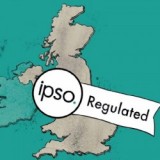 A regional daily has been rapped over its refusal to publish a correction on social media after two separate investigations.
A regional daily has been rapped over its refusal to publish a correction on social media after two separate investigations.
The Independent Press Standards Organisation upheld a complaint against the Hull Daily Mail following its decision not to publish a correction on its social media channels after a request by reader William Hackett.
Complaining under Clause 1 (Accuracy) of the Code, Mr Hackett took issue with a story that reported that a primary school would not be reopening after the Christmas break, despite parents being urged by the government to send kids to school.
The story also appeared online, with links to the piece being posted on the publication’s Facebook and Twitter pages
However, IPSO only ruled against the Mail after Mr Hackett took the watchdog itself to the Independent Complaints Reviewer.
The ICR found the initial IPSO investigation was “flawed” because its Complaints Committee “had not ruled on the complaint in relation to the social media posts, instead considering the complaint against the article alone”.
The Committee had already found the Mail to be in breach of the Code in relation to the original story, which also appeared online, with links to the piece being posted on the publication’s Facebook and Twitter pages.
But, following the ICR’s decision, a further breach of Code was confirmed against the Mail.
In his original complaint to IPSO, Mr Hackett said the school was not, at the time of the story’s publication, planning to close.
He noted that an email from the school quoted in the story confirmed this because it did not state that the school would be closing, instead making clear that “arrangements” were still being made and that the school was “await[ing] further developments from the Government and the unions”.
In response, the Mail accepted that the original story was inaccurate.
The headmaster of the school had contacted the newspaper to make it aware of the true position the following day, at which point it amended the online version of the story and deleted the social media posts.
The Mail noted that the school did not in fact open the following day, as government guidance came into force and mandated schools to remain closed to a majority of pupils, adding that the school itself had not expressed any dissatisfaction with the corrective action it had undertaken.
The paper also published a print clarification, but Mr Hackett said he expected any correction to be published on social media with the same prominence and repetition as the original story.
In response to this, the Mail did not consider it would be proportionate to publish a correction on its social media channels in a case where the posts had been removed as soon as it became aware of the potential confusion arising from the story.
IPSO initially found that the corrective actions the Mail had undertaken in print and online in relation to the inaccurate information were sufficient – but after the ICR’s ruling, the complaint was returned to the Committee to consider in relation to the social media posts.
IPSO then found that where text appears in a social media post, and that text constitutes a significant inaccuracy, any correction must be issued on that same medium to meet the due prominence requirement of Clause 1(ii).
The Committee therefore concluded that the appropriate remedy was the publication of corrections on the publication’s Facebook and Twitter pages.
The complaint was upheld, and the full adjudication can be read here.





 Follow HTFP on Twitter
Follow HTFP on Twitter